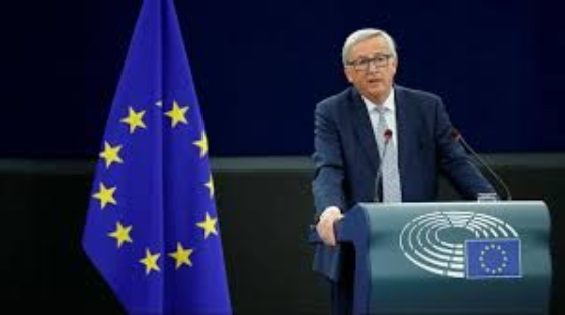Jean-Claude Juncker, President of the European Commission, will deliver his annual State of the Union address this Wednesday in Strasbourg.
This speech will be accompanied by the approval of several legislative projects, notably the one on creating a true European border and coast guard service, endowed with powers previously reserved for national authorities.
This new service will be able to intervene in third countries and participate in the deportation operations of illegal migrants.
The Commission’s proposal for strengthening the borders allocates for the first time more money to immigration control than to development aid for Africa.
This measure has been in the pipeline for years but has always been criticized by several countries, particularly those in southern Europe, which do not favor relinquishing their authority to the EU on such a sensitive subject.
Tensions on this matter revived following Italy’s refusal to allow people rescued at sea to disembark on its soil. The Commission thus deemed that managing migratory flows at the national level was not functioning and needed to be replaced by a centralized action.
The approval of the proposal would constitute a remarkable leap forward in the federalization of surveillance, underlines the Spanish newspaper, which notes that the creation of Frontex in 2004 and its strengthening in 2016 with the creation of a border agency did not encroach on the competence of the states.
The European border and coast guard service has about 1,500 deployed agents, compared to more than 100,000 national border guards. It only intervenes at the request of countries and in collaboration with national border guards.
Brussels has already proposed increasing the number of European agents to 10,000 before 2020. With the proposal expected to be announced, it would provide this force with centralized command and extensive powers.
Jean-Claude Juncker will simultaneously propose an improvement in legal migration channels to facilitate legal and controlled arrivals in Europe.
These proposals are expected to be presented in the form of a communication, a less significant format than the legislative project for border reinforcement.


